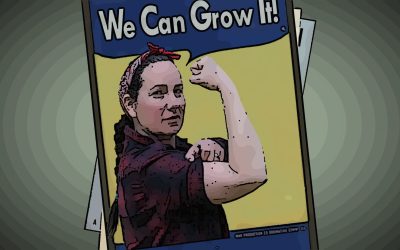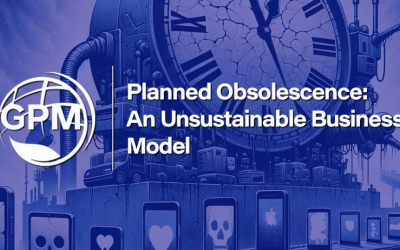Flipping the System: Why Local Governments Should Be at the Top of the Political Hierarchy

Our political system is built like a pyramid. At the top sits the federal government, wielding the most power and resources. Beneath it lie provincial or state governments, and at the bottom are local governments—municipalities, cities, and towns. While this structure might seem logical on paper, in practice, it often leaves local governments, the entities closest to the people, struggling to meet the needs of their communities.
Why? Because resources flow upward to the federal level through taxes, only to trickle down again in limited, highly regulated amounts. This system creates inefficiencies, delays, and significant gaps in addressing the issues that matter most to citizens. What if we flipped this structure on its head? What if local governments became the primary drivers of governance, with provincial/state and federal governments playing supporting roles?

The Case for Local Government Leadership
- Proximity to the People
Local governments are closest to the people they serve. They understand the unique challenges of their communities, whether it’s fixing potholes, managing local schools, or addressing housing shortages. A localized approach ensures that resources are allocated efficiently and directly to where they are needed most. - Faster Decision-Making
By empowering local governments, decisions can be made faster. Local councils can respond to emergencies or shifting priorities without waiting for federal approvals or navigating layers of bureaucracy. - Greater Accountability
With power concentrated locally, elected officials are more visible and accessible to their constituents. Residents are more likely to hold them accountable, ensuring transparency and better governance. - Innovation Through Experimentation
Local governments are natural incubators for innovative solutions. When resources and decision-making authority rest at the community level, municipalities can experiment with policies and programs tailored to their specific needs. Successful initiatives can then be scaled regionally or nationally.
How a Flipped System Could Work
- Funding Flows Downward
Instead of tax revenues flowing upward to federal governments, funds would primarily stay within local jurisdictions. Communities would retain a significant portion of their tax revenue, using it to address their own priorities. - Federal and State Governments as Support Structures
In this model, provincial/state and federal governments would act as coordinators and regulators, stepping in to manage issues that transcend local boundaries, such as national defence, international trade, or environmental protection. Their role would be less about dictating local policy and more about providing expertise, guidance, and supplementary funding when necessary. - Simplified Bureaucracy
Grant applications and complex red tape would be replaced with direct funding mechanisms. Local governments would have the autonomy to allocate resources without the need to navigate multiple layers of approval. - Community-Driven Governance
Local councils would engage directly with citizens to identify and prioritize projects. Participatory budgeting, town halls, and digital platforms could enhance democratic engagement and ensure funds are used effectively.

Why Now?
The current system, while well-intentioned, has shown its limitations. By flipping the system, we can create a more agile, equitable, and responsive governance model that truly serves the people it represents.
It’s time to rethink the hierarchy of power in our political system. The future of governance lies not at the top of the pyramid but at its base—in the hands of local communities.
We CAN do better
Logic 4 Mayor
When Michelle Staples decided to run for Mayor of Duncan, she had no idea it would become one of the best experiences of her life. Along with a team of dedicated people, she successfully tackled one of the most significant issues facing many communities: homelessness....
Victory Gardens
In times of uncertainty like the pandemic, one thing to consider is food security. Growing your own food is a solution we certainly all can do to help relieve the strain on the system in the event of service disruptions. Knowing where your food comes from and how it...
Wendy’s Water Co-op
When Wendy Holm purchased a property in Fanny Bay, she was surprised to find it had a water bottling license/operation in place. As an ardent opposer to water extraction schemes, her first instinct was to shut it down. However, after realizing that her neighbours...
The Harm of the Powerful: A spotlight on corporate social irresponsibility and corporate crimes
The Harm of the Powerful: A spotlight on corporate social irresponsibility and corporate crimes Original Article by Rafael Alcadipani We see the headlines: Vale dam collapses, killing nearly 300 people; BP’s oil well explodes in the Gulf of Mexico; Lehman debacle...
Resource Based Economy
Embracing a Resource-Based Economy: A Vision for a Sustainable Future In a world grappling with inequality, resource depletion, and environmental crises, a Resource-Based Economy (RBE) offers a transformative solution. Unlike traditional monetary systems, an RBE...
Planned Obsolescence: An Unsustainable Business Model
Planned Obsolescence: An Unsustainable Business Model March 13, 2024 by Michael Pace Original Article Let’s start by defining some terms. Planned Obsolescence involves designing products to quickly break or become obsolete in the short to mid-term, with the general...
Time Bucks
The Future of Trade: An Open-Sourced Labour Exchange Economy Based on Time Imagine a world where your time is the primary currency. Instead of relying on fiat money, you trade your hours of labour directly for goods and services. This concept, often referred to as a...
Eliminate Money & Profit
When Money and Corporate Profit Become Irrelevant: A Vision of Resource-Based Living Imagine a group of people stranded on an island. Among their possessions are gold, diamonds, and wads of cash. Yet, without access to food, water, or shelter, their wealth holds no...
MIT study explains why laws are written in an incomprehensible style
The convoluted “legalese” used in legal documents conveys a special sense of authority, and even non-lawyers have learned to wield it. Anne Trafton | MIT News Publication Date: August 19, 2024 Legal documents are notoriously difficult to understand, even for...
Repair Cafe
Planned obsolescence has slowly but surely crept into our consumer-driven society. Repair Cafés are a great way to combat wasteful built-it policy while simultaneously cleaning up our environment. Items you purchase with your hard earned cash don't need to end up in...
Release the Patents!
Patents: Protecting Progress or Stifling Innovation?“Patents are important because they help protect your invention by giving you the exclusive right to stop others from copying, manufacturing, selling, or importing your invention without your permission.” –...
Re-write the Laws
Living in Harmony with Natural Law: A Blueprint for Freedom and Order When human beings live in accordance with Natural Law, they attain and sustain freedom, fostering a society rooted in order and harmony. Conversely, when human beings oppose Natural Law, they...











